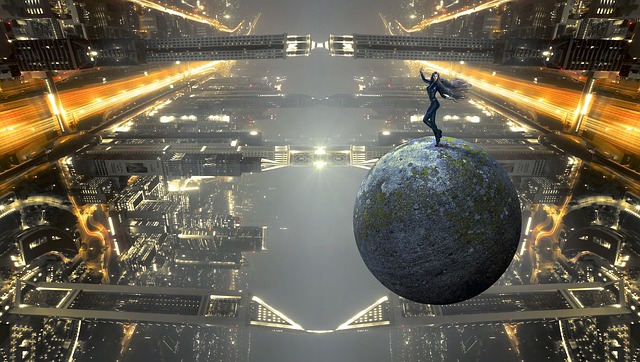By Ninichi | Contact | Follow
As an indie game developer or indie filmmaker, one of the toughest challenges in your creative journey is staying motivated through it. If you’re working alone or even in a small team, maintaining that energy and enthusiasm through the various stages of your project can be really hard – especially each time you hit a stumbling block, which you inevitably will.
As a music composer I have supported various game developers and filmmakers, helping them to realise their exciting concepts and to bring their games and films to life. Being a part of the process is a real privilege and if I can – I like to help others where I can, so here are some tips that I hope you will helpful:
1. Know why you’re doing this
What’s driving you to make this game or film? What’s exciting about it and which aspects do you really want to get your teeth into? Know what the reasons are for doing this and jot those down. Keep them close to you as a reminder and motivator. Know the purpose of this whole exercise and experience and think about what you’re hoping to get out of it.
2. Establish what you want to do (and what you don’t want to be doing)
What areas do you want to be involved in and which areas aren’t so interesting for you? Often people lose motivation when they’re stuck doing something that they never really wanted to be doing in the first place. Creating a game or film requires lots of skills. You may not have all of these skills and you may or may not want to develop all of these skills.
There is nothing wrong with not wanting to learn absolutely everything and in finding others to help with those key areas.
3. Set some achievable goals & reward yourself along the way
Try to make a plan with some goals, milestones, and targets for you to aim for. Break it down into manageable tasks so that it doesn’t feel overwhelming and each time you make a break through – celebrate! There will be many steps along the way and it’s important to know what those steps are, to keep moving forwards and to appreciate how far you’ve come.
4. Build a support network
Find people who can support you through your game development or filmmaking journey. These could be people who:
- Have done it before and can share experiences
- Are creating their own games / films now – who are in the same boat
- Can offer expertise in specific areas e.g. music / sound effects / art etc.
- Can form part of your team – and work with you to complete the project
- Are enthusiastic about games / films and can be supportive and loyal fans
5. Invest real money into it
I’m a big believer in investing in projects that you really want to work and believe in. This means investing both your time and money into it. If you put some financial investment into it (it doesn't have to be masses by the way - just a little is fine), this means you’ve got some skin in the game and you have to make it work.
The amount of investment is completely up to you - but if you invest in the game (in the assets / sound / your team), or your film (the crew / cast / music etc) - you will have that extra drive and need to make your project successful. Failure will not be an option and you will make it happen!
6. Tell people about what you’re doing
Don’t be shy about your game or film. What you’re doing is exciting, brave and challenging. Your friends / colleagues will most likely be really supportive and could be helpful along the way. Another key reason to shout about it – is that often when you tell others that you’re going to do something – by having said it out loud – you will hold yourself accountable to making it happen and staying true to your word. Say that it’s what you are doing, and you will make it so.
(Also see: How to Promote Your Game on Twitter)
7. Try to stay focused
You may have lots of other ideas – of other games or films that you want to work on, but realistically there is only one of you and you only have so much time. Pick one to prioritise and see it through. If you don't, you will most likely keep getting distracted and finish none of your great ideas - so focus focus focus!
8. Don’t procrastinate
Your time is precious, and so use it wisely and make sure that you’re moving your project along whenever you can. Try to get into a routine whereby you dedicate a bit of time to your project every day or week or whatever you decide works for you – and stick to it. It may seem tough initially but if you stick to your routine and also take some time to figure out what routine works best for you - it will become a habit and part of your lifestyle.
Completing a project can be really challenging but it’s worth it! Your game or film deserves to be created and for others to be able to see and appreciate what you’ve built and put together. Don’t give up – and if you need some help with music, don’t hesitate to drop me a line!












